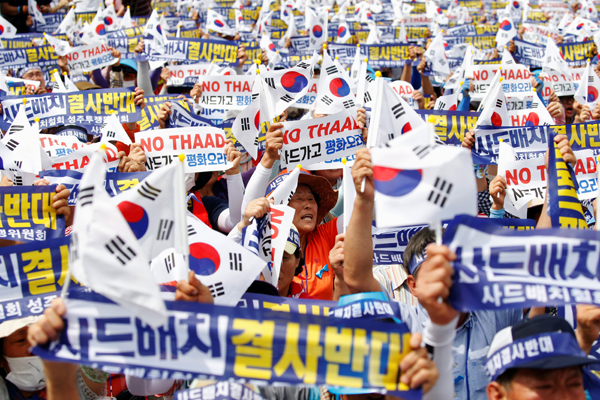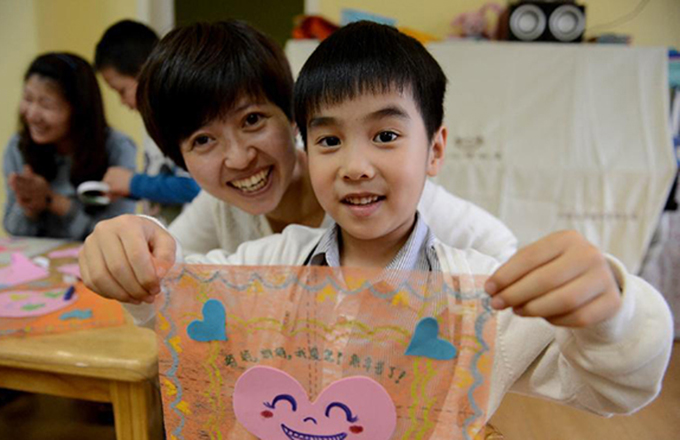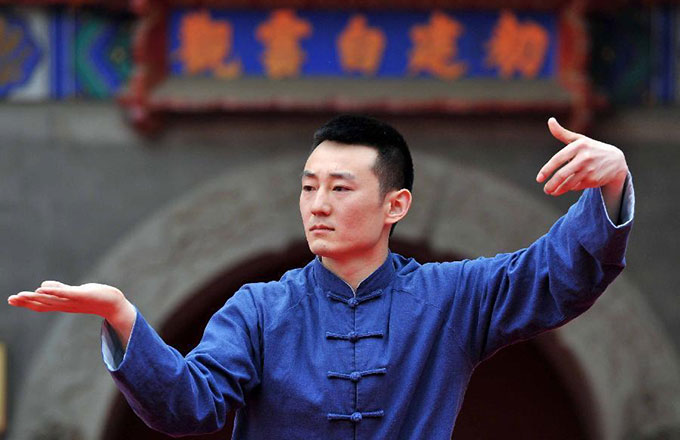ROK's THAAD review welcome
 |
|
File photo shows Seoungju residents chant slogans during a protest against the government's decision on deploying a US THAAD anti-missile defense unit in Seongju, in Seoul, South Korea, July 21, 2016. The banner reads "Desperately oppose deploying THAAD". [Photo/Agencies] |
The decision by the ruling Minjoo Party in the Republic of Korea to push for a parliamentary hearing on the controversial deployment of a US missile defense system in the ROK is an important step toward de-escalating tensions on the Korean Peninsula.
It is also a welcome signal sent by the new ROK President Moon Jae-in that he wants to improve ties with China.
As the United States and the ROK accelerated the deployment of the Terminal High Altitude Area Defense system in the ROK last month, the tense atmosphere on the peninsula worsened and the confrontation between the various parties became more acute.
The deployment of THAAD in the ROK has also soured relations between Beijing and Seoul, because Beijing sees it as an unacceptable move undermining its own security interests. Thus, the decision made by ROK's new ruling party could be a welcome game changer for both the situation on the peninsula and China-ROK ties.
Considering that disputes over the deployment of THAAD in the ROK have resulted in relations between Beijing and Seoul falling to their lowest ebb in years, the political transition in the ROK offers a good opportunity for Seoul to improve ties with Beijing.
A growing number of people in the ROK have also protested against the installation of the US anti-missile system, believing it could imperil the security of their country instead of shoring it up.
It would cater to the concerns of people in the ROK and those in neighboring countries if the ROK parliament were to vote against the deployment of THAAD in the ROK, or at least delay it.
Meanwhile, all parties concerned should demonstrate restraint and show political wisdom and strategic patience so that joint diplomatic efforts could be made to improve the current situation on the peninsula and work toward building lasting peace and stability in the region.


















